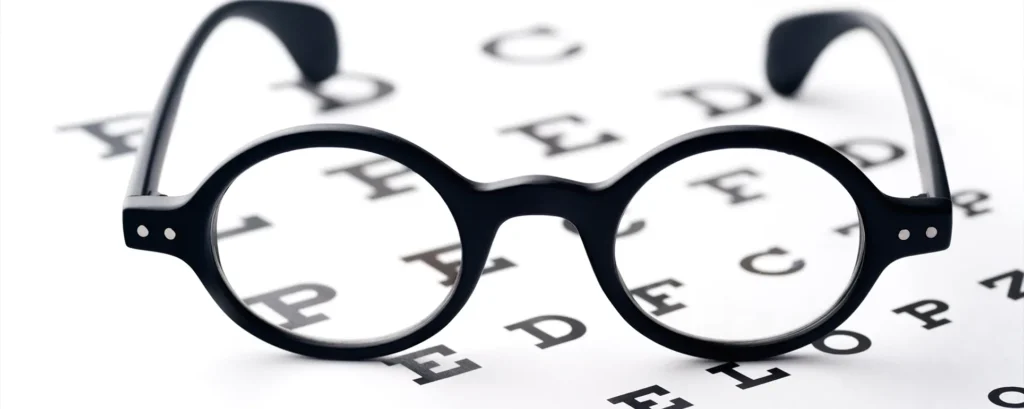When most people think of cataracts, they imagine cloudy or blurred vision. What they often don’t expect is the dizzy or unsteady feeling that can sometimes come alongside it. If you’ve been noticing moments of imbalance, light-headedness, or even a sense that the room is moving, you might be wondering whether your cataracts could be part of the cause. The truth is, while cataracts are primarily a visual problem, the way they change how you see the world can absolutely affect how stable and steady you feel.
In this article, we’ll take a detailed look at the connection between cataracts and dizziness. You’ll learn how lens clouding impacts balance, why some people are more affected than others, and what can be done to restore both clear vision and confidence in everyday activities.
Understanding Cataracts Beyond Blurred Vision

Cataracts occur when the normally clear lens of the eye becomes cloudy. This clouding scatters light, blurs vision, and reduces the sharpness of what you see. Most people associate cataracts with symptoms like hazy vision, difficulty reading in low light, or trouble seeing at night. While these are certainly the most common complaints, the effects of cataracts don’t stop at simple blurriness.
Your eyes are not just for sight—they’re part of the body’s balance system. The visual signals your brain receives play a huge role in helping you stay upright, judge distances, and move safely through your environment. When these signals are distorted, the knock-on effect can be surprisingly broad. For some people, cataracts can subtly undermine their sense of orientation, leading to dizziness or even increasing the risk of falls.
Why Vision Changes Can Make You Dizzy
Think about how you feel when you put on a new pair of glasses with a stronger prescription, or when you look through a warped window. The world may appear bent, shifted, or unstable, and it takes your brain time to adjust. Cataracts can produce a similar, but ongoing, distortion. Light enters the eye differently when the lens is cloudy, and objects can appear less clear or slightly doubled.
The brain then has to work much harder to interpret what’s being seen. This constant effort can cause fatigue, disorientation, and sometimes dizziness. When your vision doesn’t match up neatly with signals from the inner ear (which controls balance) and the body’s sense of movement, the result can be a sensation of imbalance. In older adults especially, this mismatch may be enough to cause unsteadiness when walking or even vertigo-like episodes.
The Role of Depth Perception and Spatial Awareness

Another subtle but important factor is depth perception. Cataracts often affect one eye more than the other in the early stages. When one eye is cloudier, the brain receives mismatched visual input, making it difficult to judge distances accurately. Simple tasks like stepping off a kerb, climbing stairs, or pouring water can suddenly feel tricky.
This reduced ability to gauge space can trigger dizziness because your brain is trying to reconcile two conflicting versions of reality. It’s a bit like walking after spinning around—you know where you are, but your body feels out of sync with your vision. That confusion can manifest as unsteadiness, swaying, or light-headedness.
Night-Time Dizziness and Cataracts
For many people, dizziness linked to cataracts is worse in low light or at night. The reason is simple: cataracts scatter light, which creates glare and halos around headlights or street lamps. This scattering worsens in dim environments, when the pupil naturally widens to let in more light.
The result is disorienting—objects may seem to glow, lights may appear to stretch across your vision, and your ability to see edges and contrasts is greatly reduced. Walking outside after dark or driving at night can therefore feel not only difficult but also unsafe. In these conditions, dizziness isn’t just uncomfortable—it can directly increase the risk of accidents.
Are Cataracts the Only Cause of Dizziness?
It’s important to say that cataracts are not the only reason someone might feel dizzy. Inner ear problems, blood pressure changes, medication side effects, and other eye conditions like glaucoma or macular degeneration can all contribute. That’s why dizziness should always be investigated thoroughly, particularly if it is new, severe, or worsening.
However, if you already know you have cataracts and you’ve noticed dizziness creeping in, it’s worth considering the connection. Cataracts are a common and correctable cause of visual distortion, and treating them often leads to a noticeable improvement not only in sight but also in overall stability.
How Cataracts Increase Fall Risk
Falls are one of the biggest health concerns for older adults. Research shows that poor vision significantly raises the likelihood of falling, and cataracts are one of the main culprits. If you can’t see edges, obstacles, or steps clearly, you are much more likely to trip. Add dizziness into the mix, and the danger rises sharply.
Studies have found that cataract surgery can cut the risk of falls in half in some patient groups. By restoring sharp vision, the surgery reduces the brain’s confusion, improves depth perception, and allows people to move more confidently. For many patients, this change translates not just to clearer sight, but to a renewed sense of independence and freedom.
The Relief Cataract Surgery Can Bring
The good news is that cataract-related dizziness is not something you simply have to live with. Cataract surgery—the world’s most commonly performed eye operation—removes the cloudy lens and replaces it with a clear artificial one. The procedure is quick, usually done under local anaesthetic, and recovery times are short.
Patients often report that not only does their vision improve dramatically after surgery, but their feelings of unsteadiness or dizziness ease as well. For many, this change is life-altering. Colours become brighter, distances are easier to judge, and the daily fear of losing balance fades away.
When to Seek Help
If you’re experiencing dizziness and have cataracts, don’t ignore it. Book an appointment with an eye specialist to discuss your symptoms. They can check whether your cataracts are advanced enough to warrant surgery, and they may also rule out other causes of dizziness.
The sooner cataracts are treated, the better the outcome tends to be. Waiting too long can make surgery more complicated and increase the risk of accidents in the meantime. So if you’re concerned about your balance or vision, reaching out promptly is the safest choice.
Living Safely Until Surgery
If you are waiting for cataract surgery, there are steps you can take to reduce dizziness and stay safe in the meantime. Make sure your home is well-lit, especially around stairs and hallways. Use non-slip mats in the bathroom and avoid clutter on the floor. If you find night-time walking difficult, carry a torch or use motion-sensor lights.
Regular eye check-ups are important, as glasses may need updating to help maximise the vision you do have until surgery. If one eye is significantly worse than the other, sometimes adjusting lenses can reduce the imbalance and ease dizziness. Finally, try to avoid rushing—taking your time when moving about gives your brain more chance to process what you’re seeing.
FAQs About Cataracts and Dizziness
1. Can cataracts directly cause dizziness?
Cataracts themselves don’t trigger dizziness in the way that an inner ear condition would, but the cloudy lens can change how light enters the eye and how your brain interprets the world around you. This distortion can make it harder to judge distances, track movement, or stay oriented in space. When your brain has to constantly work harder to interpret unclear images, it can lead to a sense of imbalance or light-headedness. So, while cataracts are not a direct cause of dizziness, the visual disruption they create can certainly make you feel dizzy or unsteady.
2. Why does dizziness seem worse at night with cataracts?
Night-time vision relies on your pupils widening to let in more light, but when cataracts are present this larger opening means more light scatter and glare enters the eye. The result is halos, starbursts, or an overall hazy glow that makes it harder to focus. In the dark, your brain already has less reliable visual information, so adding cataract-related distortions makes it even harder to feel steady. Many people notice that their dizziness or unsteadiness increases most when driving after dark, walking in poorly lit areas, or even navigating their own homes at night.
3. Are older adults more likely to experience dizziness from cataracts?
Yes, age is an important factor. As we get older, our balance systems naturally weaken—the inner ear becomes less responsive, muscles lose some strength, and reflexes slow down. If cataracts are also present, this visual compromise is added on top of an already reduced stability system. That combination can make dizziness more noticeable and more dangerous. For older adults, even a mild sense of unsteadiness linked to cataracts can translate into a higher risk of falls and accidents, which is why treatment is especially valuable in this age group.
4. Can cataracts in just one eye make me dizzy?
Cataracts that affect one eye more than the other can definitely lead to dizziness. The reason is that your brain is receiving two very different images—one clear and one cloudy—and trying to merge them into a single picture. This mismatch confuses depth perception and can make straight lines look bent or distances harder to judge. Over time, your brain may suppress the weaker eye’s input, but in the meantime the struggle between the two signals can cause eye strain, headaches, and dizziness. It’s one of the reasons why people with one particularly cloudy lens often feel worse than those whose cataracts are evenly advanced in both eyes.
5. Does wearing glasses help with cataract-related dizziness?
In the early stages of cataracts, glasses can sharpen vision and reduce some of the discomfort associated with blurred sight, which may help ease mild dizziness. However, glasses can’t clear away the cloudiness of the natural lens itself, so their benefit is limited. As cataracts worsen, even the strongest prescription will not fully correct the distortion, and dizziness may return or become more noticeable. At that point, cataract surgery is usually the only way to resolve the problem and restore clarity in a way that eliminates the source of visual imbalance.
6. Can cataract surgery stop dizziness?
For many patients, cataract surgery provides a remarkable improvement not only in vision but also in balance and stability. Once the cloudy lens is removed and replaced with a clear artificial lens, the visual distortions that were confusing the brain disappear. This often means less dizziness, better depth perception, and a renewed ability to walk or move with confidence. That said, if dizziness is caused by something else, such as an ear condition or medication side effect, surgery will not completely resolve it. Still, restoring clear vision is often a huge step towards reducing overall imbalance.
7. Is dizziness from cataracts dangerous?
Dizziness linked to cataracts is not dangerous in itself, but the risks come from what it can cause. Feeling unsteady increases the chance of falls, which can be very serious for older adults and may result in fractures, head injuries, or a loss of independence. Even mild dizziness can make everyday activities like climbing stairs or crossing the road less safe. This is why it’s important not to ignore symptoms—if cataracts are contributing to dizziness, addressing them promptly can help prevent potentially dangerous consequences.
8. What’s the difference between cataract dizziness and vertigo?
Cataract-related dizziness usually feels like unsteadiness, swaying, or difficulty staying balanced. It stems from unclear or conflicting visual information. Vertigo, on the other hand, is a spinning or rotational sensation, often linked to inner ear problems. While the two can sometimes feel similar, they have different causes. If you experience spinning sensations, it’s important to seek medical advice to rule out vertigo or other underlying conditions, even if you also have cataracts.
9. Should I tell my surgeon if I’ve been dizzy before cataract surgery?
Yes, it’s very important to mention any dizziness to your surgeon. It helps them understand your full set of symptoms and assess whether cataracts are the likely cause or if further tests are needed. Your surgeon can then give you a realistic idea of how much improvement to expect from surgery. Being open about dizziness also ensures your care is tailored to your specific needs, particularly if balance issues might affect your recovery or mobility in the days after the operation.
10. How soon after cataract surgery will dizziness improve?
Most people notice an improvement in balance and orientation within days of surgery, once the eye starts to heal and vision clears. For others, it may take a few weeks for the brain to fully adapt to the new, clearer input. If both eyes require surgery, dizziness often improves even further once the second cataract is removed, because the brain is finally receiving equally clear signals from both eyes. While results vary, many patients say their unsteadiness fades quickly and they feel more confident in their daily movements after surgery.
Final Thoughts
Cataracts are usually thought of as a problem that simply clouds vision, but their effects can go much further. By altering the way you see the world, they can contribute to dizziness, imbalance, and even falls. While cataracts are not the only possible cause of dizziness, they remain an important factor—particularly for older adults who already face natural age-related changes in balance.
The positive news is that cataract surgery can address both the visual clouding and the unsteadiness that often comes with it. By restoring clarity, improving depth perception, and reducing visual distortion, surgery can help you move more confidently and safely. Many people find that their dizziness fades noticeably once their vision is restored.
If you’ve been experiencing dizziness alongside cataracts, it’s worth getting assessed by an eye specialist. The sooner you explore treatment, the sooner you can reduce your risk of falls and regain a stronger sense of balance.
At London Cataract Centre, our team of expert surgeons provide personalised care to help you see clearly and live more steadily. You can find out whether private cataract surgery is the right choice for your needs by booking a consultation with us today.
References
- Harwood, R.H., Foss, A.J.E., Osborn, F., Gregson, R.M., Zaman, A. and Masud, T., 2005. Falls and health status in elderly women following first eye cataract surgery: a randomised controlled trial. British Journal of Ophthalmology, 89(1), pp.53-59. Available at: https://bjo.bmj.com/content/89/1/53 [Accessed 23 September 2025].
- Meuleners, L.B., Fraser, M.L., Ng, J. and Morlet, N., 2013. The impact of first- and second-eye cataract surgery on injurious falls that require hospitalisation: a whole-population study. Age and Ageing, 42(6), pp.770-774. Available at: https://academic.oup.com/ageing/article/42/6/770/45899 [Accessed 23 September 2025].
- Elliott, D.B., 2014. The Glenn A. Fry Award Lecture 2013: Blurred vision, spectacle correction, and falls in older adults. Optometry and Vision Science, 91(6), pp.593-601. Available at: https://journals.lww.com/optvissci/fulltext/2014/06000/blurred_vision,_spectacle_correction,_and_falls_in.1.aspx [Accessed 23 September 2025].
- Black, A.A., Wood, J.M., Lovie-Kitchin, J.E. and Newman, B.M., 2008. Visual impairment and postural sway among older adults with glaucoma. Investigative Ophthalmology & Visual Science, 49(11), pp.5296-5301. Available at: https://iovs.arvojournals.org/article.aspx?articleid=2164624 [Accessed 23 September 2025].
- Lord, S.R., Dayhew, J. and Howland, A., 2002. Multifocal glasses impair edge-contrast sensitivity and depth perception and increase the risk of falls in older people. Journal of the American Geriatrics Society, 50(11), pp.1760-1766. Available at: https://agsjournals.onlinelibrary.wiley.com/doi/10.1046/j.1532-5415.2002.50502.x [Accessed 23 September 2025].

